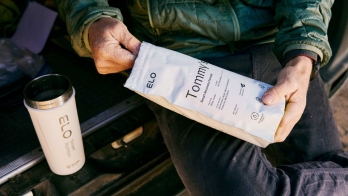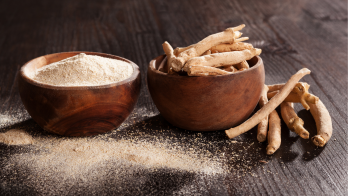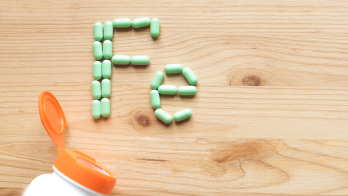The ultimate guide to zinc: health benefits, zinc gummies, and more
Zinc is an essential mineral and plays an important role in skin health, immunity, and wound healing. Here’s everything you need to know about zinc and whether a supplement (or zinc gummies) may be right for you.
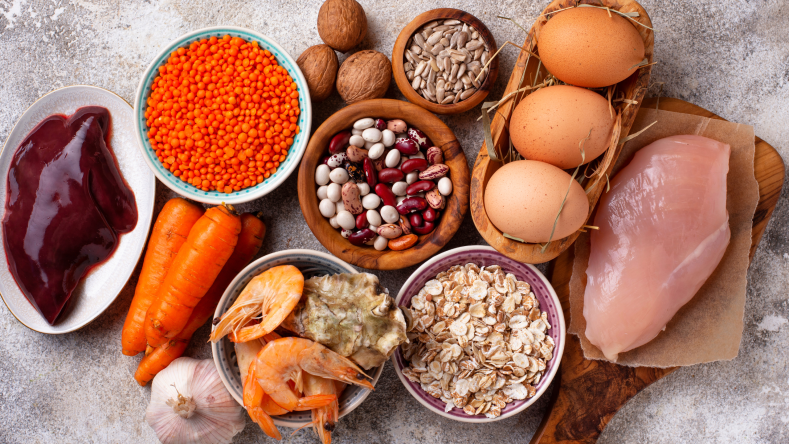
Zinc is an essential mineral involved with many bodily functions, including immune health, wound healing, and skin health. However, certain populations may be at risk of deficiency, which can negatively affect your skin, bones, and the digestive, reproductive, central nervous, and immune systems. But why else is zinc so important, and how do you know you’re getting enough of it?
In this comprehensive guide, we will cover everything you need to know about zinc (including health benefits, RDAs, and precautions) and if you should consider supplementation.
Understanding zinc and its health benefits
Zinc is an essential mineral in many aspects of cellular metabolism and is required for the catalytic activity of hundreds of enzymes [ 1
Here are some other science-backed benefits of zinc.
Zinc for acne
Research indicates that people who struggle with acne may have decreased serum zinc levels. As such, zinc may be effective for treating acne and reducing the number of inflammatory papules [ 2 3
Immune health
Zinc plays an important role in immune defense, as it is vital for the development and functions of all immune cells [ 4 5
Stress reduction
Research indicates that zinc might be beneficial in alleviating symptoms of stress, as there appears to be a correlation between low zinc plasma levels and people with anxiety. As such, zinc therapy has been shown to increase plasma levels, which may improve anxiety and stress symptoms [ 6
Wound healing
Zinc is an important coenzyme in tissue repair and plays a key role in numerous wound-healing processes (including coagulation, cellular immune regulation, epithelial regeneration, and extracellular matrix deposition) [ 7 8
Zinc benefits for skin
Zinc can be beneficial for a variety of skin conditions, including viral warts, genital herpes, rosacea, psoriasis, melasma, basal cell carcinoma, alopecia, and certain endocrine and metabolic diseases [ 9
Recommended daily intake of zinc
The RDA for zinc is as follows [ 1
Men over 14 years old: 11 mg/day
Women 14-18 years old: 9 mg/day (12 mg/day and 13 mg/day for breastfeeding and lactation, respectively)
Women over 19 years old: 8 mg/day (11 mg/day and 12 mg/day for breastfeeding and lactation, respectively)
Dietary sources
You can find zinc in red meat, poultry, eggs, beans, nuts, certain types of seafood (such as oysters, crab, and lobster), whole grains, fortified breakfast cereals, and dairy products [ 1
However, phytates (a natural component of plants) can severely decrease intestinal zinc bioavailability and are regarded as the primary nutritional inhibitor of zinc absorption [ 10
Phytates are present in plant-based foods like whole grain breads, cereals, and legumes, so those who follow a vegetarian or vegan diet are more likely to have lower levels of zinc than their omnivore counterparts [ 11
Zinc gummies and supplements
Supplements may contain several forms of zinc, including zinc gluconate, zinc sulfate, zinc picolinate, zinc sulfide, zinc lozenges, zinc orotate, zinc citrate, or zinc acetate. Supplements can also come in the form of zinc gummies, which might be a good alternative for people who have trouble swallowing pills.
Talk with your healthcare provider before adding zinc to your supplement routine.
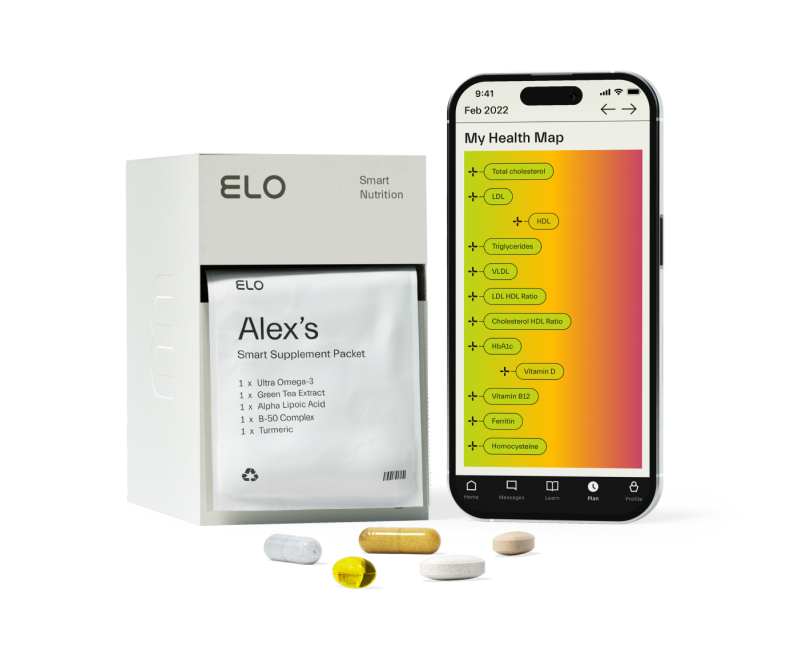
Get personalized supplements with Elo Health
With so many supplements on the market, it can be hard to sort through the noise to determine which one is right for you. At Elo Health, we’ve done the work for you – our team of experts have dug into the science to determine the best supplements to help you reach your health and wellness goals.
We provide personalized smart supplements at-home blood testing biomarkers 1:1 dietitian support with our Elo Health coaches Start your personalized supplement journey today!
When is the best time to take zinc?
According to experts, the best time to take zinc is at least 1 hour before or 2 hours after meals [ 12
Notable supplement combinations
While zinc is an essential nutrient, there are some nutrient combinations that you should be aware of. Here are a few supplements that work synergistically (and one you should keep an eye on).
Zinc and magnesium. Studies show that, when taken together, zinc and magnesium can have beneficial effects on FPG, HDL cholesterol, CRP, and insulin [ 13
Vitamin C with zinc. Notable research suggests that supplementing with vitamin C and zinc may be helpful in mitigating COVID-19 symptoms [ 14
Zinc and copper. Though rare, copper deficiency can result from high levels of zinc, which decreases the body’s ability to absorb and use copper from the diet [ 15 16
Talk with your healthcare provider before adding zinc to your supplement routine.
Zinc deficiency
Research shows that a zinc deficiency can affect your skin and bones, as well as your digestive, reproductive, central nervous, and immune systems [ 1
People who may be at risk of developing a zinc deficiency include:
People with gastrointestinal disorders or who have had bariatric surgery
Vegetarians (especially vegans)
People who are pregnant or lactating
Older infants who are exclusively breastfed
Children with sickle cell disease (SCD)
People with alcohol use disorder
Precautions
While zinc supplements are usually well-tolerated, they can cause nausea, vomiting, diarrhea, and stomach pain in some people, along with coughing, headache, and fever in those taking more than 40 mg/day [ 17 1
FAQs about zinc
Can zinc make you nauseous? Taking a zinc supplement on an empty stomach or taking too high a dose might make you nauseated.
Can you take zinc while pregnant? Emerging research indicates that zinc supplements reduce the risk of preterm birth, however, more studies are needed in this area [
18
].Does zinc increase testosterone? Studies show that a zinc deficiency may negatively affect men’s sexual health and fertility [
19
]. To combat this, research has found that supplementing with 220 mg/zinc sulfate twice per day may prove beneficial [20
].
Summary
Zinc is an essential mineral involved with many bodily functions, including immune health, wound healing, and skin health. However, certain populations may be at risk of deficiency, which can negatively affect many aspects of your health.
You can obtain this mineral through zinc-rich foods and supplements, but remember that certain nutrients (like vitamin C, magnesium, and copper) can enhance health benefits or impair absorption. Talk with your healthcare provider before adding zinc into your routine to make sure you understand how best to take it.
Even though zinc supplements are generally well-tolerated, you should look for supplements (like zinc gummies) that have been third-party tested for purity and quality, such as Elo Health’s smart supplements
Disclaimer: The text, images, videos, and other media on this page are provided for informational purposes only and are not intended to treat, diagnose or replace personalized medical care.
Key takeaways
Zinc is an essential mineral that enhances immune function, protein and DNA synthesis, wound healing, and cell signaling and division.
Phytates can severely decrease intestinal zinc bioavailability and are regarded as the main nutritional inhibitor of zinc absorption.
When taken together with zinc, vitamin C and magnesium can have added health benefits, whereas copper can impair zinc absorption.
Learn more about how
Elo Health
can help you optimize your zinc levels through at-home biomarker testing, smart supplements, and 1:1 dietitian support.
References
U.S. Department of Health and Human Services. (n.d.). Office of dietary supplements - zinc. NIH Office of Dietary Supplements.
https://ods.od.nih.gov/factsheets/Zinc-HealthProfessional/
Yee, B. E., Richards, P., Sui, J. Y., & Marsch, A. F. (2020). Serum zinc levels and efficacy of zinc treatment in acne vulgaris: A systematic review and meta-analysis. Dermatologic therapy, 33(6), e14252.
https://doi.org/10.1111/dth.14252
Yee, B. E., Richards, P., Sui, J. Y., & Marsch, A. F. (2020). Serum zinc levels and efficacy of zinc treatment in acne vulgaris: A systematic review and meta‐analysis. Dermatologic Therapy, 33(6).
https://doi.org/10.1111/dth.14252
Wessels, I., Fischer, H. J., & Rink, L. (2021). Dietary and physiological effects of zinc on the immune system. Annual Review of Nutrition, 41(1), 133–175.
https://doi.org/10.1146/annurev-nutr-122019-120635
Derouiche, S. (2020). Zinc supplementation prevents the complications of COVID-19 infection in cancer patients. Asian Pacific Journal of Cancer Care, 5(S1), 137–141.
https://doi.org/10.31557/apjcc.2020.5.s1.137-141
Russo A. J. (2011). Decreased zinc and increased copper in individuals with anxiety. Nutrition and metabolic insights, 4, 1–5.
https://doi.org/10.4137/NMI.S6349
Yang, F., Xue, Y., Wang, F., Guo, D., He, Y., Zhao, X., Yan, F., Xu, Y., Xia, D., & Liu, Y. (2023). Sustained release of magnesium and zinc ions synergistically accelerates wound healing. Bioactive Materials, 26, 88–101.
https://doi.org/10.1016/j.bioactmat.2023.02.019
Lin, P. H., Sermersheim, M., Li, H., Lee, P. H. U., Steinberg, S. M., & Ma, J. (2017). Zinc in Wound Healing Modulation. Nutrients, 10(1), 16.
https://doi.org/10.3390/nu10010016
Zou, P., Du, Y., Yang, C., & Cao, Y. (2023). Trace element zinc and skin disorders. Frontiers in Medicine, 9.
https://doi.org/10.3389/fmed.2022.1093868
Maares, M., & Haase, H. (2020). A guide to human zinc absorption: General overview and recent advances of in vitro intestinal models. Nutrients, 12(3), 762.
https://doi.org/10.3390/nu12030762
Foster, M., Chu, A., Petocz, P., & Samman, S. (2013). Effect of vegetarian diets on zinc status: a systematic review and meta-analysis of studies in humans. Journal of the science of food and agriculture, 93(10), 2362–2371.
https://doi.org/10.1002/jsfa.6179
Mayo Foundation for Medical Education and Research. (2023, September 1). Zinc supplement (oral route, parenteral route) proper use. Mayo Clinic.
https://www.mayoclinic.org/drugs-supplements/zinc-supplement-oral-route-parenteral-route/proper-use/drg-20070269#
Hamedifard, Z., Farrokhian, A., Reiner, Ž., Bahmani, F., Asemi, Z., Ghotbi, M., & Taghizadeh, M. (2020). The effects of combined magnesium and zinc supplementation on metabolic status in patients with type 2 diabetes mellitus and coronary heart disease. Lipids in health and disease, 19(1), 112.
https://doi.org/10.1186/s12944-020-01298-4
Firouzi, S., Pahlavani, N., Navashenaq, J. G., Clayton, Z. S., Beigmohammadi, M. T., & Malekahmadi, M. (2022). The effect of Vitamin C and Zn supplementation on the immune system and clinical outcomes in COVID-19 patients. Clinical nutrition open science, 44, 144–154.
https://doi.org/10.1016/j.nutos.2022.06.006
Munk, D. E., Lund Laursen, T., Teicher Kirk, F., Vilstrup, H., Ala, A., Gormsen, L. C., Ott, P., & Damgaard Sandahl, T. (2022). Effect of oral zinc regimens on human hepatic copper content: A randomized intervention study. Scientific Reports, 12(1).
https://doi.org/10.1038/s41598-022-18872-8
Duncan, A., Yacoubian, C., Watson, N., & Morrison, I. (2015). The risk of copper deficiency in patients prescribed zinc supplements. Journal of clinical pathology, 68(9), 723–725.
https://doi.org/10.1136/jclinpath-2014-202837
Zinc - StatPearls - NCBI Bookshelf - National Center for Biotechnology.
https://www.ncbi.nlm.nih.gov/books/NBK547698/
Iqbal, S., & Ali, I. (2021). Effect of maternal zinc supplementation or zinc status on pregnancy complications and perinatal outcomes: An Umbrella Review of Meta-analyses. Heliyon, 7(7).
https://doi.org/10.1016/j.heliyon.2021.e07540
Fallah, A., Mohammad-Hasani, A., & Colagar, A. H. (2018). Zinc is an Essential Element for Male Fertility: A Review of Zn Roles in Men's Health, Germination, Sperm Quality, and Fertilization. Journal of reproduction & infertility, 19(2), 69–81.
Santos, H. O., & Teixeira, F. J. (2019). Use of medicinal doses of zinc as a safe and efficient coadjutant in the treatment of male hypogonadism. The Aging Male, 23(5), 669–678.
https://doi.org/10.1080/13685538.2019.1573220



